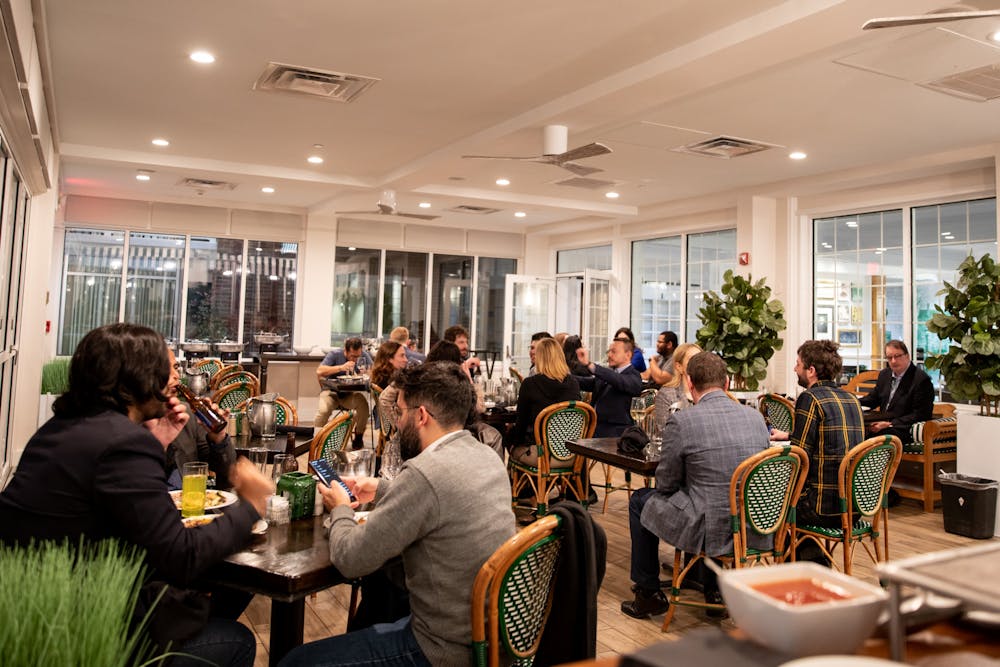This week holds host to the distinguished Kiplinger Fellowship, a program funded by economic journalist Knight Kiplinger. The program was hosted at Ohio State University for 47 years until it was moved to Ohio University in 2021, in line with Kiplinger's desire as the benefactor to associate the fellowship with a renowned journalism school.
The program gives working journalists an opportunity to learn about a specific topic. This year, it is: Covering Political Discourse and Saving Democracy. The fellowship involves five days of training, including 10 speakers with a variety of specialties, along with plenty of time to network amongst each other.
This year's group of 19 fellows was selected from a pool of over 300 applicants. The program's executive director of six years, Kevin Smith, said that while the quality of work and passion for the program are important factors, he also considers the political landscape of the applicants, especially given this year's program focus.
"I pick the (applicants) that I think represent all of the world," he said.
Smith is proud of this year's agenda and hopes that the fellows will benefit from their week at OU.
"Even if there's just one session that really resonates with them and makes them say 'Wow, I'm glad I learned something from this,' then it's definitely worth the time here," he said.
This year's class of fellows consists of journalists from a multitude of areas in media, one of whom is Marsha McLeod, who works at The Globe and Mail in Ottawa, Canada. McLeod covers various topics, from gun legislation to vaccine requirement backlash, and was drawn to this year's program. McLeod is also impressed by the internationality of this year's class.
"For working journalists, we don't really get opportunities … to talk to other journalists from beyond the U.S. ... (it's) a very unique opportunity," she said.
The specialties of the speakers range from conspiracy theories to social media to, in the case of Brandy Zadrozny, political extremism. Zadrozny is a senior reporter at NBC News and a fellow at the Shorenstein Center at Harvard University. She has been focusing on political extremism for approximately four years and feels that she and the fellows have much to learn from each other.
"These fellows are from other areas of the world where political extremism is more advanced than we are here," she said. "I have learned some lessons that I hope to impart on the fellows, and I think that they have lessons from their home countries, or wherever they're reporting from, that they can impart too."
Zadrozny describes this year's fellowship class as a group of "really established journalists who are doing work in areas that we absolutely need them." Hearing Zadrozny describe the state of American democracy, that fact rings completely true.
"Domestically, we are at a real precipice point where we saw in 2021 the literal near toppling of a democracy," she said. "So, we're at this point where we have to decide whether we will sort of devolve or whether we will rise to the occasion."
Between the caliber of learning experiences and dedication to the networking aspect of the program, the 50th-anniversary class of the Kiplinger Fellowship is in for a life-changing week. The enthused buzz of the reception room, in which one can both see and hear the important exchange of ideas and creativity, is a promising sign of that inevitability.






